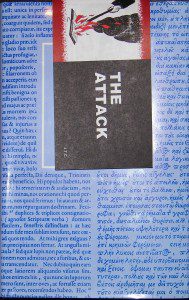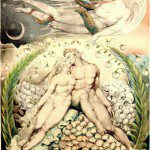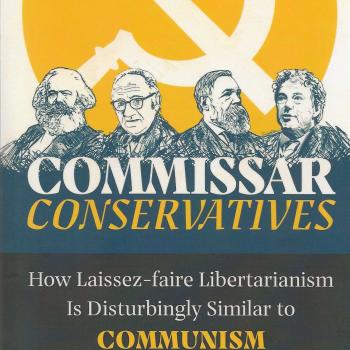When ordering a book from an Amazon affiliate, I never know exactly what I will get. Most of the time the description of the quality and condition of the text is met or exceeded when the book arrives. Sometimes, the quality of the text is less than expected, but if I did not pay too much for the book, I grumble a bit but do not complain so long as it is close to what I expected. Occasionally the quality is way off and I still do not ask for a refund if the cost was not too much, the book is still useable, and the affiliate is associated with some sort of charity organization, such as a library book sale. This latter possibility happened to me recently: I ordered an older volume from the CUA Fathers of the Church Series, an out of print hardback edition of the text, and paid what I thought was a fair price for the text. When it arrived in the mail, the book was old, but rebound around 2006, causing the external binding not to match the rest of the series. While I would have preferred the original binding, as I expected, I decided to shrug this one off, knowing a paperback reprint is more expensive than the copy I bought.

But one of the biggest surprises I’ve had recently is when I ordered a used hardback copy of Origen’s Homilies on Luke. The text book was in great shape, and so, in that regard, I got what I expected. And yet it was what came with the book which surprised me.
A Chick tract entitled, “The Attack.”
Clearly, whoever sold me the books knew enough about the text to give me a Chick tract which, in an odd way, fit with the book. “The Attack” expresses the idea that the Bible is under attack, with people throughout time trying to change the text to confuse and mislead people. It’s an absurd comic, full of misinformation, equivocation, and outright fantasy, like all Chick tracts. But a part of its theme is that the Alexandrians were behind the corruption of Scripture, and so the Alexandrian tradition is to be rejected as influenced by the devil.
St. Jerome couldn’t be prouder – except, of course, this edition of Origen’s homilies only come to us because it was preserved in Jerome’s Latin translation. St. Jerome in his youth was enthused by the writings of Origen, and, despite how much he would protest Origen’s theological speculations later in life, it is clear Jerome will forever be tied to Origen and many of his interpretations of Scripture were actually influenced by Origen. He might not have gone the route of St. Ambrose and written homilies which borrowed significant portions of Origen’s writings, but Origen’s legacy was too great to ignore, and he gave the most significant commentaries on Scripture in the Ante-Nicene era. Even those who wanted to reject Origen would be influenced, directly or indirectly, by Origen’s presentation of the Biblical text – so much so that St. Jerome suggested Origen’s Homilies on Luke were among the best homilies available on Luke (while he thought the homilies of St. Ambrose to be childish and worthy of mockery).
But, this does make me wonder. What exactly did the seller think I would make of a Chick tract if I were reading the texts of Origen? Sure, I might appreciate the artistry of contemporary comic books, and animated films such as those done by Miyazaki, and so have no problem with comic books being used as a medium of information exchange. The Catholic Church, likewise, has encouraged the production of such comics, which is why they teamed up with Marvel to produce a comic book on the life of St. John Paul II. The medium is not the problem. It’s the quality, or with Jack Chick the lack of quality, of the information which is easily ascertained by anyone who does serious patristic reading that makes such an inclusion risible. What did the seller think I would think? Did he expect me to go wow, this comic book tells me the truth which I have never heard before, and I will believe its unsupported claims? Someone reading Origen is not going to be impressed with a narrative which claims, “The Bibles from Alexandria, Egypt, downplayed the deity of Christ, the virgin birth, salvation by grace through faith, etc.” (pg.8), when I am reading a text from an Alexandrian father who argues within it for the deity of Christ, the virgin, birth, and salvation by grace through faith?
Seriously, as a great admirer of Origen, I know he sometimes says very strange, outlandish things. I accept that when reading him and know that Origen would have no problem with his readers distancing themselves from speculations he had which conflicts with official church teaching. But no matter how odd his theories are, nothing is on the level of the speculations and suggestions found in a Chick tract. The seller, who I am sure thought was doing me a favor by putting a Chick tract with the order, did Origen the greatest favor of all. He gave me something to contrast against the ideas of Origen to show that Origen really wasn’t so strange after all.
So, if I were to be asked if I wanted a Jack Chick tract with a copy of Origen’s text, I would say sure, send it to me. Thank you for giving a prime example of what true willful heresy is all about, helping to vindicate Origen as a man of the church. While he could sometimes explore ideas which we now think are wrong, no matter how odd they are to us, they look rather sane in comparison to the claims found within a Chick tract.
Stay in touch! Like A Little Bit of Nothing on Facebook:
A Little Bit of Nothing












